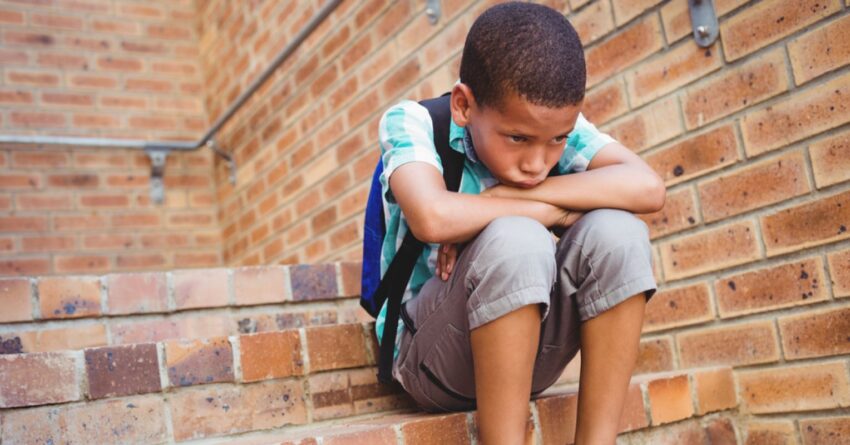There’s been a notable increase in anxiety among children over the past few years, making them the most anxious generation of all time. While some of the factors are beyond our control, there are things we can do to address the growing mental health crisis among young people.
In my book, 13 Things Mentally Strong Parents Don’t Do, I explain how we can give kids the skills and tools they need to thrive. But before parents can do that, it’s important to understand the underlying reasons why kids are more anxious than ever.
1. They’re pressured to excel at everything.
Today’s educational environment is often characterized by a strong emphasis on academic success and athletic achievement. Children are pushed to excel, sometimes from a very young age, creating a competitive atmosphere that can lead to stress and anxiety. The pressure to perform well can overshadow the joy of learning and foster an environment where mistakes are feared, rather than seen as opportunities for growth.
2. Adults are stressed and kids are picking up on that.
The U.S. Surgeon General recently shared a report outlining the mental health crisis among parents. Forty-eight percent of parents say that most days, their stress is completely overwhelming and many parents lack coping skills or social support. Stressed-out parents may be less affectionate and less responsive to their kids, which can lead to an increased risk of behavior problems, lower self-esteem, and social isolation for kids.
3. Screen time is reducing their face-to-face time.
With the rise of technology, children are spending more time on screens, which can negatively affect sleep patterns and reduce opportunities for face-to-face interactions. These interactions are vital for developing emotional intelligence and resilience.
Social media, in particular, showcases idealized lifestyles that lead to social comparisons. The pressure to maintain a perfect online persona adds layers of stress that previous generations didn’t face.
4. Their schedules are overflowing.
Many children today have schedules packed with extracurricular activities, leaving little time for relaxation and unstructured play. While these activities can be enriching, an over-scheduled lifestyle can lead to burnout and anxiety, preventing children from having the downtime necessary for mental and emotional recovery.
5. We’re doing too much for them.
Kids need the opportunities to explore without a ton of oversight. Just like you might feel anxious when your boss stands over your shoulder and watches you type, kids feel anxious when we’re constantly monitoring, intervening, and guiding every move they make. It’s important for kids to feel competent and without opportunities to be independent, they may struggle to learn what they’re capable of doing on their own.
6. They’re exposed to constant media.
Access to global news means that children are aware of world issues like climate change, political unrest, and economic instability. This heightened awareness can contribute to a sense of helplessness and anxiety about the future, as they grapple with problems that feel too large for them to influence.
7. They’ve been given the message that they’re fragile.
From constantly checking on their whereabouts with apps to cleaning up after them, kids are getting the message that they’re fragile. Many of them were told they were “traumatized” by the pandemic as well (even though the vast majority weren’t), which sent a message to them that they’re broken or wounded, which affects their beliefs about how capable they are.
8. They don’t get enough time for unstructured, outdoor play.
Concerns about safety, coupled with the allure of digital entertainment, have led to a decrease in outdoor play. Nature and physical activity are known to have positive effects on mental health, providing stress relief and promoting emotional balance. The lack of these outlets can contribute to increased anxiety levels.
9. They aren’t being taught how to build mental strength.
Many children today are not equipped with effective coping mechanisms to manage stress. Without these tools, challenges and setbacks can feel insurmountable, leading to heightened anxiety when faced with life’s pressures. They struggle to regulate their emotions, cope with unhelpful thoughts, and take positive action without guidance on how to build mental strength.
10. Conversations surrounding mental health may dismiss the seriousness of anxiety.
While conversations about mental health have increased, terms like, “anxiety” and “trauma” are often used in a casual way—which can water down the experience for people who are struggling with mental health issues. Children who have anxiety disorders may feel dismissed when many people claim to have anxiety casually. This can exacerbate feelings of isolation and helplessness, as children struggle without the support they need.
Solutions That Will Help the Anxious Generation
It’s essential for adults to learn how to manage stress and anxiety in their own lives so we don’t pass it on to the next generation. It’s also important to scale back on the pressures we give kids and to open the door to lifestyle changes that support better mental health. Better access to mental health services and treatment is also essential to helping the anxious generation grow up to become mentally strong people who thrive during life’s inevitable ups and downs.
